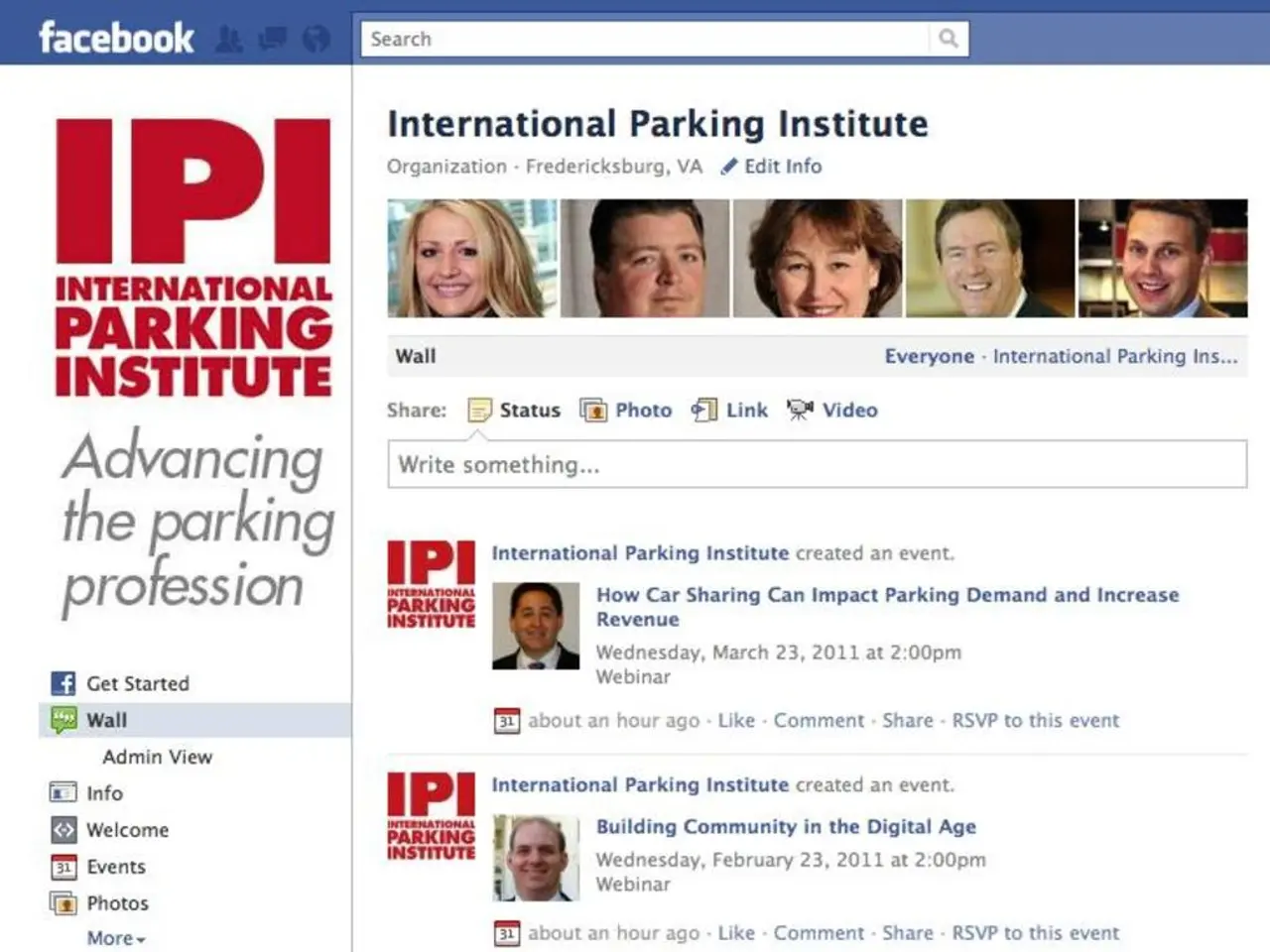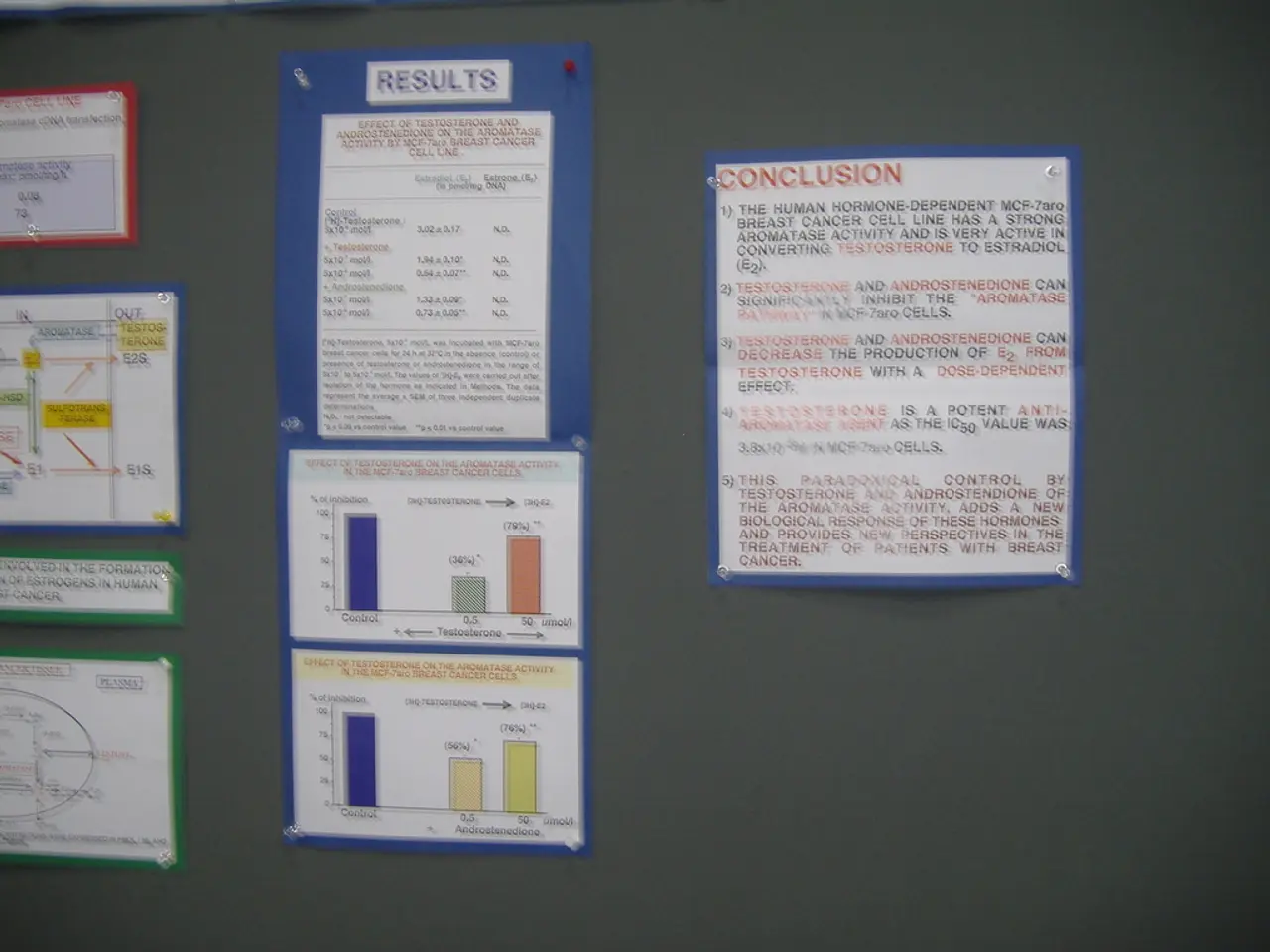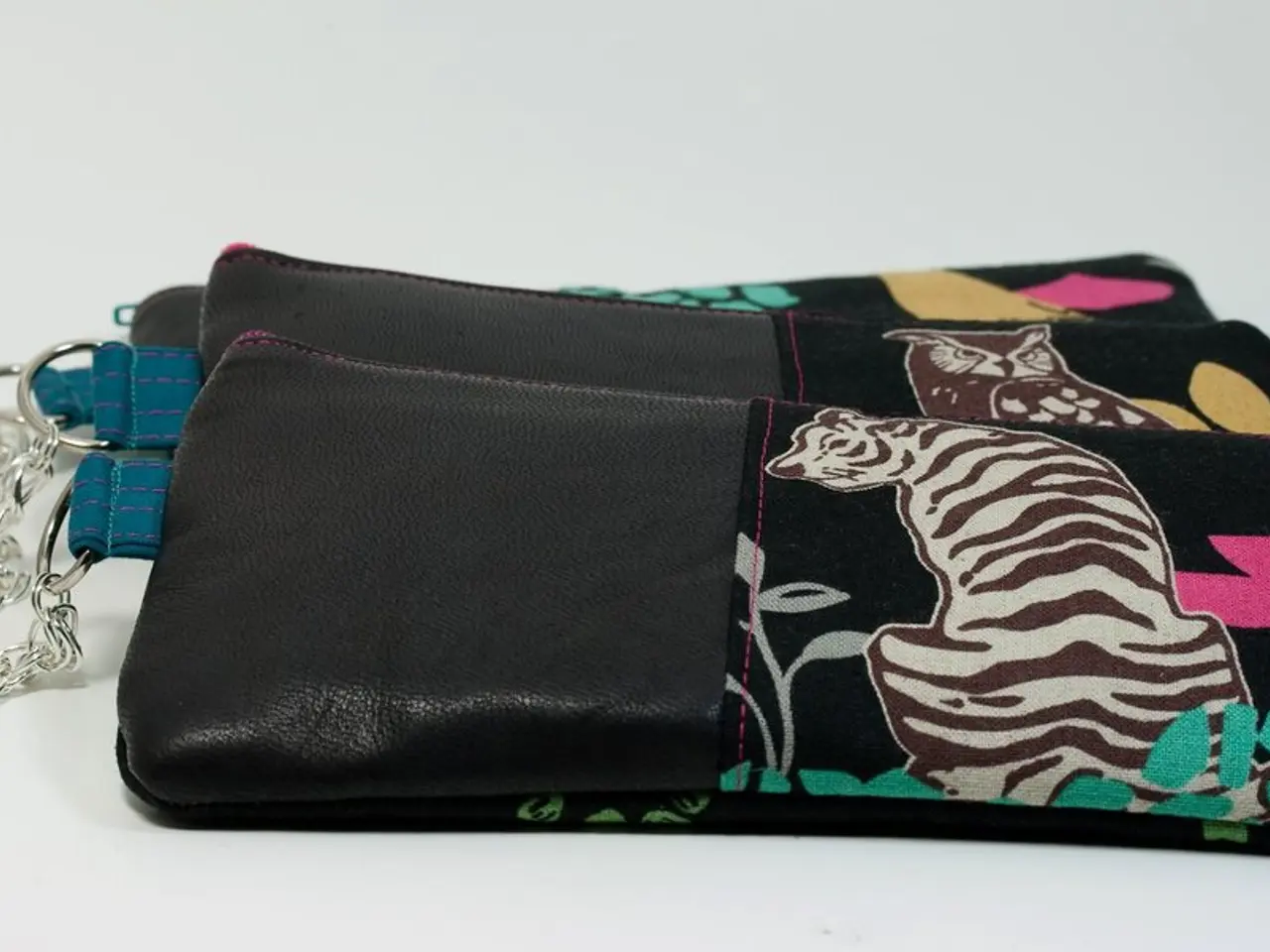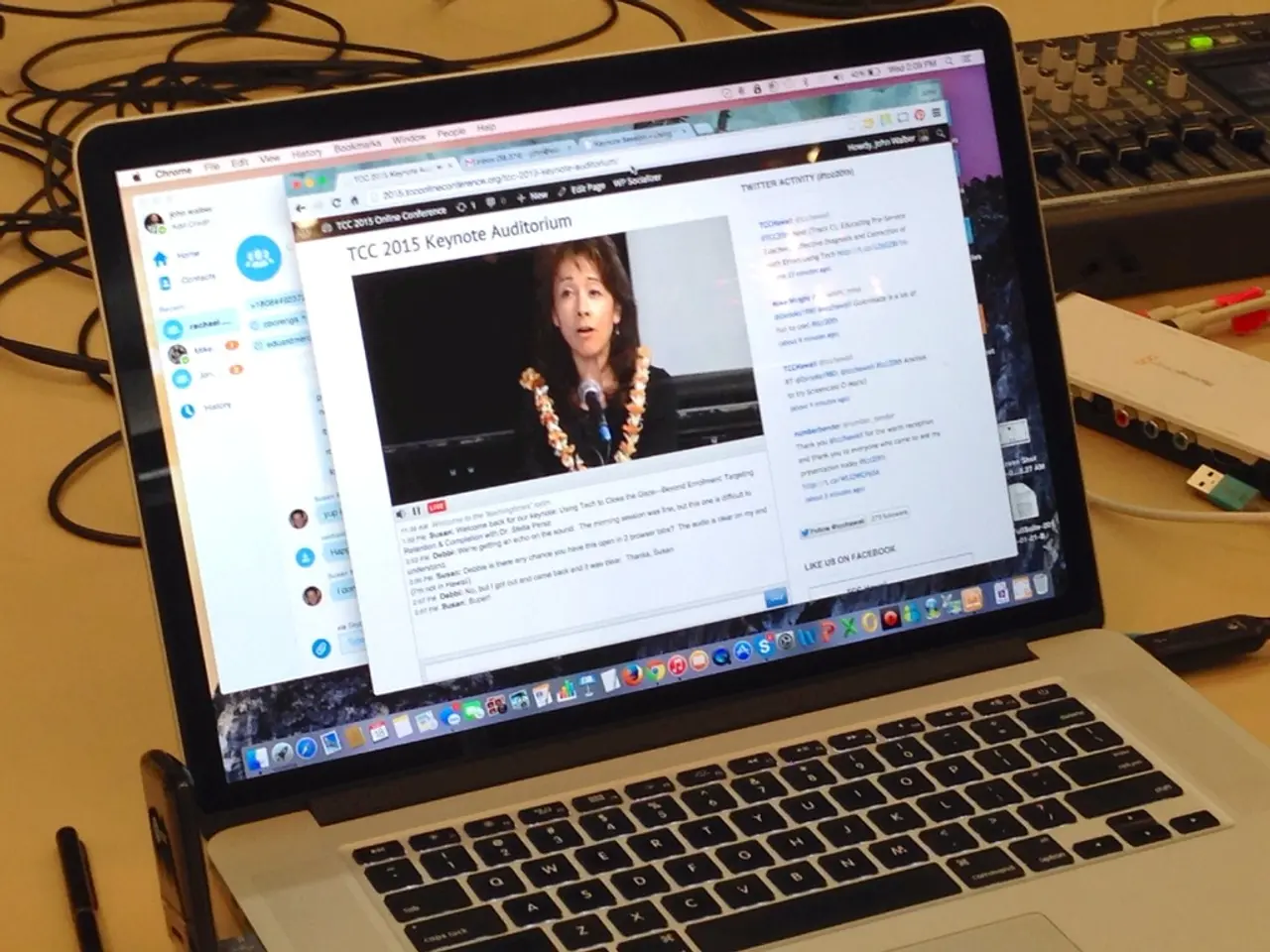Exposed Documents Reveal Facebook's Directory of 'Potentially Harmful People and Entities'
Facebook's Secret Blacklist: The "Dangerous Individuals and Organizations" List
Facebook, now Meta, maintains a confidential list known as the "Dangerous Individuals and Organizations" (DIO) list. This list categorizes certain people and groups as threats, including those involved in terrorism, hate, violence, or organized hate groups [1][2].
The content of the list is not publicly disclosed in its entirety, but reports suggest it includes groups associated with white supremacy, neo-Nazis, violent extremists, and other hate groups or terrorism-linked entities [1][2]. Meta uses this list as a basis for removing or restricting content, accounts, and pages, aiming to curb the spread of dangerous hate and prevent real-world harm.
Critics have raised concerns about the list's construction and application, alleging that it can disproportionately target certain political or ideological groups. The opaque nature of the list and lack of public accountability have fueled concerns about censorship and inconsistent enforcement [2]. The Meta Oversight Board has advised Meta to clarify and disclose aspects of these policies to improve transparency and fairness while balancing free speech [3][4].
The impact on free speech is significant. Facebook and Instagram can ban or suppress users and content based on their appearance on this list. While intended to prevent hate and violence, the policy has raised debates about overreach and the risk of suppressing legitimate political dissent or expression [4]. Furthermore, arbitrary or inconsistent application of bans has been reported, which fuels concerns about fairness and the chilling effect on speech [2].
The DIO list includes far-right groups such as the Proud Boys, the American Nazi Party, The Daily Stormer, the Ku Klux Klan, the English Defence League, and groups tied to the QAnon conspiracy theory. It also includes some factions of the left-wing Antifa. Over 200 musical acts are listed, as well as long-dead historical figures like Adolf Hitler, Benito Mussolini, Joseph Goebbels, Joseph Mengele, and a medical university that's trying to manufacture a homegrown COVID-19 vaccine in Iran [1].
Meta's spokesperson denied that extremist right-wing organizations were treated differently because of their association with American conservative politics. The names and groups listed as terrorists are largely taken from a sanctions list that the United States Treasury Department controls [1]. However, Faiza Patel, co-director of the Brennan Center for Justice's liberty and national security program, stated that the lists seem to create two disparate systems, with heavier penalties applied to Muslim regions and communities [1].
As of 2021, there are over 2.89 billion active Facebook users, representing over a third of the world's population [1]. The spokesperson emphasized that Facebook's definition of terrorism is agnostic to religion, region, political outlook, or ideology [1]. Around 500 hate groups, including over 250 white supremacist organizations, make up Tier 1 [1]. A group of social media researchers from the University of Utah expressed concerns about including certain figures on Facebook's list [1].
In summary, Facebook's DIO list functions as a secret blacklist used to enforce content removal and account bans to combat terrorism and hate speech. However, its secretive nature, alleged biases, and significant consequences for free speech have led to scrutiny from journalists, human rights advocates, and the Meta Oversight Board, which continues to recommend improvements in transparency, clarity, and fairness of the policy [2][3][4].
References: [1] The Intercept. (2021). Facebook's Secretive 'Dangerous Individuals and Organizations' List. Retrieved from https://theintercept.com/2021/06/22/facebook-dangerous-individuals-organizations-list-oversight-board/ [2] Zuckerberg, M. (2021). Testimony before the Subcommittee on Consumer Protection, Product Safety, and Data Security. Retrieved from https://www.commerce.senate.gov/imo/media/doc/Zuckerberg_Testimony_06-23-21.pdf [3] Facebook Oversight Board. (2021). Policy and Governance Framework. Retrieved from https://about.fb.com/news/2021/06/policy-and-governance-framework/ [4] Facebook Oversight Board. (2021). Board Report on Content Moderation Decisions. Retrieved from https://about.fb.com/news/2021/06/board-report-on-content-moderation-decisions/
- The DIO list, used by Meta to curb the spread of hate and prevent real-world harm on Facebook and Instagram, includes numerous entities across various domains, such as music, history, politics, and social-media, as well as terrorists, white supremacists, neo-Nazis, and violent extremist groups.
- The opaque nature of Meta's DIO list has led to concerns about inconsistent enforcement, with allegations that certain political or ideological groups may be disproportionately targeted, and criticism about the risk of suppressing legitimate political dissent or expression.
- The content of the DIO list, which includes figures like Adolf Hitler, Benito Mussolini, Joseph Goebbels, and Joseph Mengele, has sparked debates about overreach and the potential suppression of history or important figures from the past.
- In addition to hate groups and extremist organizations, Meta's DIO list also includes popular musical acts, raising questions about the impact of the list on the entertainment industry and creative expression.
- Controversies surrounding the DIO list as a secret blacklist for content moderation and account bans have attracted considerable attention from journalists, human rights advocates, and the Meta Oversight Board, who recommend improvements in transparency, clarity, and fairness to protect free speech and maintain balance.




